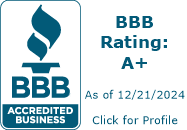A couple of months after I graduated college I got a job writing education-focused content for a lead generation company. I wasn’t a subject-matter expert, but I was expected to produce expert-level content that would generate leads for our clients.
The first few months were tough. Nothing worked because it was obvious I was a generalist pretending to be an expert.
I realized I needed to find experts to give heft to my content. I contacted college and university deans, admissions officers, and lecturers, asking if I could interview them. I turned these interviews into blog posts. Those blog posts turned into syndication opportunities with the colleges and universities the deans, admissions officers, and lecturers worked for. Those syndication opportunities turned into backlinks for my employer’s websites.
Sometimes a generalist can produce helpful content. Sometimes you need to have an expert help produce that content, especially if they’re “Your Money, Your Life” (YMYL) topics.
What are some examples of YMYL topics?
Let’s get it straight from the horse’s ass, excuse me, mouth, Google:
“YMYL content is any content that, if written inaccurately or deceptively, could negatively impact your reader’s happiness, health, safety, or financial stability. The following are examples of YMYL pages:
- Shopping or financial transaction pages: webpages that allow users to make purchases, transfer money, pay bills, etc. online (such as online stores and online banking pages).
- Financial information pages: webpages that provide advice or information about investments, taxes, retirement planning, home purchase, paying for college, buying insurance, etc.
- Medical information pages: webpages that provide advice or information about health, drugs, specific diseases or conditions, mental health, nutrition, etc.
- Legal information pages: webpages that provide legal advice or information on topics such as divorce, child custody, creating a will, becoming a citizen, etc.
- News articles or public/official information pages important for having an informed citizenry: webpages that include information about local/state/national government processes, policies, people, and laws; disaster response services; government programs and social services; news about important topics such as international events, business, politics, science, and technology; etc. Please use your judgment and knowledge of your locale. Keep in mind that not all news articles are necessarily considered YMYL.
- Other: there are many other topics that you may consider YMYL, such as child adoption, car safety information, etc. Please use your judgment.”
Search engines take this content seriously because their users take it seriously. From the above examples, you can see why. Wouldn’t you want expertly-crafted content around those topics?
Does YMYL content cost more to produce?
If you’re outsourcing the production of YMYL, yes, it costs more to produce than other content.
As I said, it would be best to have subject-matter experts (SMEs) write your YMYL content, but sometimes you may not have easy access to SMEs. In this instance, you’ll need to outsource the writing. Finding high-level freelancers who can produce competent, expert-level content for generalist prices is rare. These freelancers are usually a) retired professionals from the space, b) current practitioners who are willing to write guest posts, or c) highly-trained writers.
No matter which bucket the writer falls in, their skills are at a premium. You’ll need to pay that premium to get good content.
The cost, however, is worth it.
Are there hidden costs for YMYL content?
Early on, you’ll need to spend money testing writers and editors. When we started offering content creation as a company, we tested on the fly, and it ended up eating into our margins (aka, my damn paycheck). It almost cost us the client, as well, because the early content was poorly written. After a couple of rough months, we found a handful of excellent writers who could produce high-level content. We also added an editor into the system. While this was an extra cost, it facilitated better content that passed our client’s stringent rules, as well as their compliance office.
Based on our experience, you’ll want to find a stable of people who produce high-level content so you can scale up when you need. I like to have one writer for every five pieces of content I need to be written. Your mileage may vary, so test that, as well.
It’s also a good idea to have multiple writers who know your brand and tone so if one person is swamped with other freelance work, or they go on vacation, your content production doesn’t take a hit.
Another hidden cost: if you produce bullshit, you’ll get smacked down by the search engines. And rightly so. As we already stated, this content, “if written inaccurately or deceptively, could negatively impact your reader’s happiness, health, safety, or financial stability.”
As Brian Harnish wrote in his “SEO in 2020: What Basics You Need to Know to Be Successful” blog post:
“Google’s core algorithm update of August 2018 had many people scrambling to understand what had destroyed their website so readily in the SERPs. It’s known as the medic update because it was believed that the update targeted medical sites. When, in reality, it targeted YMYL (your money or your life) type sites as categorized in Google’s Quality Raters Guidelines.”
Harnish reported the following niches were hit hardest by the 2018 update:
- Health sites – 41.5%
- Ecommerce – 16%
- Business – 10.8%
- Finance – 7.3%
- Technology – 5.9%
- Travel – 3.5%
- Entertainment – 3.8%
- Coupon/Deal sites -1.4%
- Adult Sites – 1.4%
Search engines expect expert-level content for YMYL topics because Internet searchers expect, and NEED, expert-level content. Don’t mess around with that. If you cannot produce high-level content, it’s best to wait until you can.
What is the potential ROI of producing YMYL content?
Depending on the difficulty of ranking for the keyword or phrase, how well your content is written, and how well it’s received by your readers, there could be a number of advantages. One piece we created for a fintech client, “What does an appraiser look for when you’re refinancing?“, earned a featured snippet for that query:
It also earned a People Also Ask box for related searches:
Our CEO, Jack Treseler, took a look at the fintech landscape to see how showcasing expert writers boosted content performance:
Something to keep in mind about the above data: Though backlinks had a much tighter correlation on better rankings on Google, websites with author pages had 141% more referring domains and 588% more backlinks than their counterparts. Including authors and author pages also makes it easier to get links/publicity because of their reputation.
How can I make producing YMYL content easier for my company?
If you’re going to produce expert-level content, make sure you start with one of the following:
- Influential authors who can guest post for your blog
- Writers well-versed in your niche
Once you’ve locked down a properly skilled writer, make sure they have a foundation for sounding like your current blog content. Share example posts from your blog that you’re proud of and that perform well. Show them what you’re looking for, and ask them to emulate that in their style.
YMYL content is high risk, high reward. Like any other piece of content, all of us at Crunchy Links suggest you produce it only when you have the time, talent, and expertise to do so. You risk putting your readers in danger, risk wasting money on unhelpful content, and risk your website being punished by search engines for crappy content.









